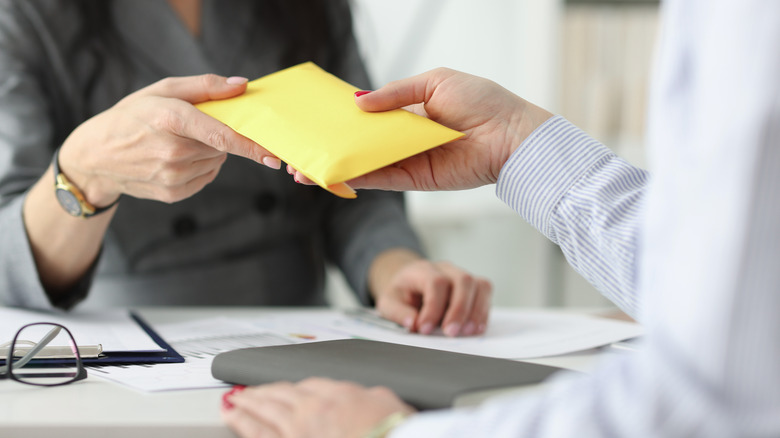What Is An Escrow Advance?
A month or two after a famous politician retires or a rock star goes to rehab, their name often appears again in the headlines. Not for any more antics or announcements on their career, but because of how much money their publishers have shelled out to get the rights to their life stories. Some would call this a "book deal," but the proper term for it is a "publisher's advance." They're giving the author cash upfront, which they expect to get back later, from book sales.
According to the National Consumer Law Centre, an escrow advance is a payment from your mortgage servicer's funds. Like with the book deal, they're paying cash up front to collect later. Now, this payment doesn't come directly to you; it goes out to the IRS or your insurance provider to cover some unexpectedly high expenses, such as an escrow shortage. You will need to pay those costs back, usually through a slight increase in your monthly mortgage payments.
Why might you need an escrow advance?
To understand why it might be necessary to have an escrow advance, let's quickly recap how escrow accounts work. As Business Yield explained, when you purchase a property, your mortgage provider will set up an escrow account for you — this is a 3rd party account that ensures you can pay big, unavoidable expenses on your property as soon as possible. They usually contain about two months' worth of payments as a buffer. It's in the interests of your mortgage lender to make sure you don't fall behind on taxes or insurance because they want to make sure you stay in your home, paying them back the money they lent you to buy it!
Each month, along with your mortgage costs, you'll pay around one-tenth of your annual property tax and homeowner's insurance bills into the escrow account, and usually, that'll cover what's needed. You don't have to worry about calculating this, it's automatically included in your monthly payments.
However, taxes can go up, and sometimes insurance premiums do too. Your mortgage provider isn't about to let you fall behind on those payments. When there's not enough money in the escrow account to cover the unexpected increases in taxes and insurance, which is called an "escrow shortage," then they will pay the difference for you. Per Fannie Mae, that extra payment is an escrow advance, and unexpected increases in taxes or insurance premiums are usually the reason you'll need one.
What happens when after you get an escrow advance?
Well, you'll need to pay it back. Per Rocket Mortgage, your mortgage provider pays the extra costs in order to stop you from getting fined, falling into foreclosure, or having other difficulties with the government or your insurance provider, but they aren't doing it for free. The good news is that you don't have to pay the balance back in one go — although you can. It's possible, according to Insurify, to choose between a one-time payment or splitting the cost over 12 months.
In either case, it's likely that your monthly payment will still increase. This is because even after you pay off the escrow advance, the root cause of the escrow shortage (i.e., the increased tax or insurance premiums) will still need paying in the future. Also, if you split the payment over 12 months, the amount may be slightly inflated by an increase in service fees.
There shouldn't be any long-term consequences of having an escrow advance — as long as you're able to pay it back in a timely way. Remember, it isn't your fault that it happened, either there was a miscalculation on the part of your lender, or something unexpected caused an increase in taxes, fees, or insurance. However, it's prudent to expect that these things will happen from time to time. Taxes, property values, and insurance premiums all fluctuate. So it's sensible to make sure you have some cash set aside to cover such unpredictable expenses.


